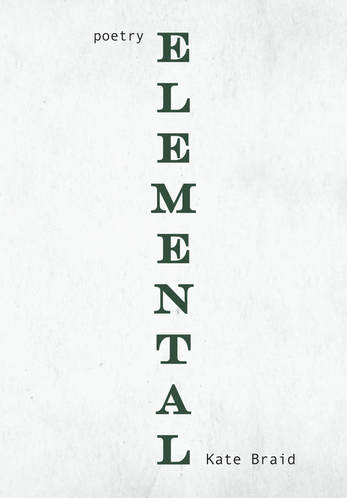Kate Braid's ElementalReviewed by Amy Mitchell
|
|
Kate Braid’s new collection, Elemental (Caitlin Press), is artistically and conceptually very tight—an impressive feat considering the poems were written over several decades and therefore likely not, originally, composed with this present collection in mind. And yet they work so well together: while the parts are accomplished, the whole is even stronger. Braid groups the poems in thematic units based on the four traditional elements—earth, air, fire and water—and takes the liberty of substituting the Chinese element wood for the Western, mystical ether. The result is a collection of quietly shifting moods that all emphasize the weirdness and the transcendence hiding in plain sight all around us, if we would simply pay attention long enough to see it.
“Water," which is in many ways representative of the approach in all the sections, is the first one in Elemental, and it veers between the calm, the whimsical and the deeply threatening. There is the quotidian in the wry “Vancouver Spring,” which recognizes the joke of celebrating a very wet, grey season on the West Coast: |


